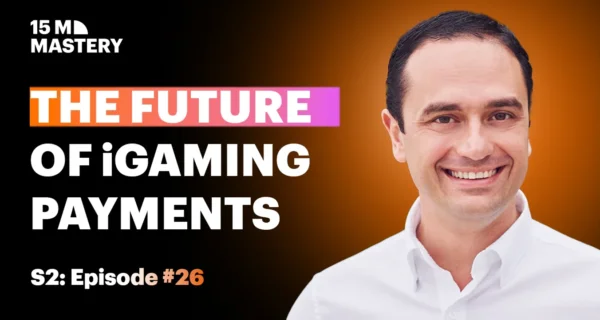Unlocking iGaming Growth: How Financial Inclusion in Emerging Markets Creates New Revenue Paths
Why Emerging Markets Hold Massive Potential
Many operators hesitate to enter emerging regions due to payment complexity. But that hesitation could be costing them more than they realise.
“There are billions of people in emerging markets,” says Mifsud. “Payments are the main hurdle—both in accessing users and in extracting profits or reinvesting locally.”
Despite brand awareness efforts or ambassador partnerships, business cannot function where payments don’t. The opportunity is not just about acquiring new users—it’s about building an ecosystem.
Bridging Money Transfers and iGaming
Xprizo began by addressing day-to-day financial needs—like sending money or buying groceries. Once users were connected through secure, accessible channels, gaming became a natural extension.
“We’re creating the rails for these people,” explains Mifsud. “Once they use our platform to buy milk or bread, it becomes just as easy to play their favourite lottery or sports game.”
Xprizo integrates with popular local methods, like M-Pesa in Kenya or PIX in Brazil, giving users trusted tools within their comfort zone.
Starting With What People Know
Adoption starts at the grassroots. Xprizo’s model is based on trust, not disruption. In Kenya, they integrated M-Pesa and established over 1,400 local cash points.
“Change is always difficult,” says Mifsud. “We started by giving people what they already know and trust, then we educated them further.”
This phased approach allowed Xprizo to establish confidence before introducing advanced financial features, like cross-border transfers or mobile-based payments for gaming.
Designing for the Real World
Xprizo’s product wasn’t adapted for emerging markets—it was built for them from day one.
“We walked the slums, asked questions, understood how people pay school fees or buy bread,” Mifsud explains. “The app must work on cheap phones and weak networks.”
With minimal buttons and lightweight design, even non-tech-savvy users can send money or top up gaming accounts in seconds. The team focused on ease of use, low data requirements, and culturally relevant design choices.
Localised Yet Scalable
Each market is different. What works in Brazil may not work in the Philippines. Xprizo built a modular platform where product features change based on:
- Device capabilities
- Local financial regulations
- Compliance and KYC requirements
“Someone in Kenya may never have a proof of address,” Mifsud says. “But that doesn’t mean they should be excluded.”
By working closely with regulators, Xprizo created tiered compliance models that allow usage without sacrificing legal obligations.
Compliance Without Sacrificing Experience
Regulations often slow down user experience. Xprizo’s solution? A dynamic compliance engine that adapts based on usage thresholds.
“We cap usage at certain limits, say €500 monthly, until further documents are provided,” Mifsud explains. “That way, you stay inclusive but prevent abuse.”
This approach balances safety with accessibility, allowing first-time users to join and build financial history gradually.
Three Steps Operators Must Take to Expand
For iGaming operators ready to explore emerging markets, Mifsud offers a clear action plan:
- Get Payments Right: Work with partners who understand local needs. “Payments come first—without them, there’s no business.”
- Adapt Sportsbook Products: Emerging markets often prefer small stakes with high volume. Ensure your platform is flexible.
- Hire Local Talent: Avoid the “know-it-all” trap. “You need people who know the culture, habits, and expectations on the ground.”
It’s About Inclusion, Not Just Expansion
Entering new markets isn’t about imposing a global product, it’s about tailoring experiences to local realities. Financial inclusion isn’t just a social good, it’s a business strategy.
“Even someone in a slum deserves financial history,” says Mifsud. “With it, they can access better services. That’s the journey we’re building.”

